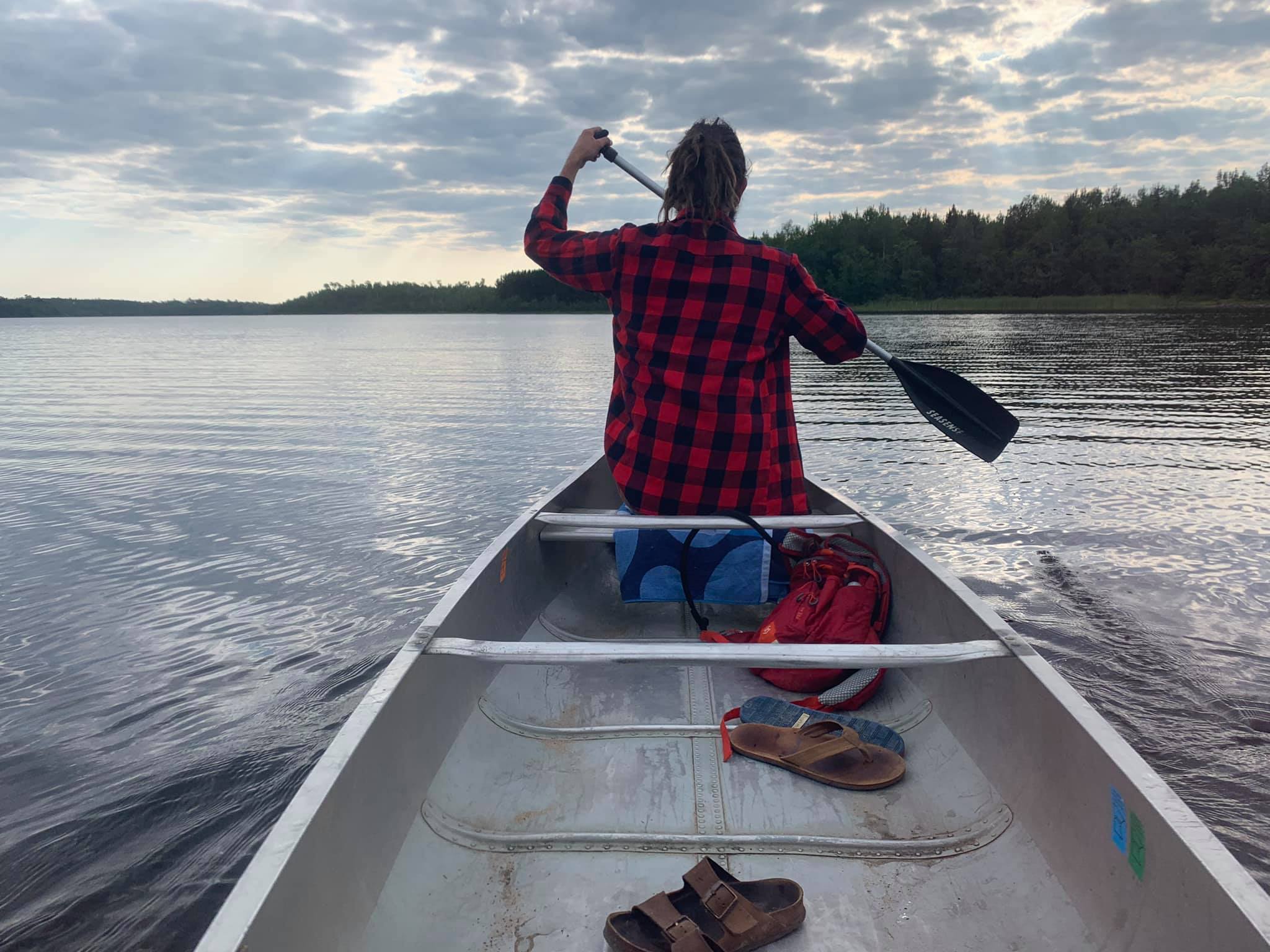As a Minnesota native yearly trips to the Boundary Waters Canoe Area (BWCA) are a must. For those of you non-Minnesotans or unfamiliar, the BWCA is part of northern Minnesota, Explore Minnesota describes this magical place as, “vast wilderness extending 150 miles along the U.S.-Canada border, covering approximately 1,098,000 acres with over 1,100 lakes and 1,500 miles of canoe routes”. It is truly a remote area that is completely undeveloped.
About BWCA

This area is any nature lovers dream. Imagine thick luscious green forests surrounded by crystal clear lakes. As you canoe you will see a plethora of wild life, vegetation, rock faces, and even waterfalls. Much of this area does not allow motors (about 75%), so you can enjoy the sounds of the water and wild life while you paddle peacefully. This area offers over 1,500 miles of canoe routes composed of lakes, rivers, and portage points.
This area also has a very rich history dating back to 8,000 BC. In a very crude nutshell, this area was home to Native Americans, who ultimately were pushed out by Europeans in 1688. You can learn more about the history here.
What to Expect
If you are planning a trip to the BWCA be prepared to rough it a bit. If you are more into “glamping” I would skip this trip. BWCA is generally highly remote with very little resources close by. Meaning, once you set up camp the nearest place to buy things like groceries or get a good WIFI signal will be at least a 20 minute drive into a nearby town and that’s if you stay near Ely. However, on one trip we stayed closer to the Gunflint Trail and the closes town was a 1 1/2 hour drive.

You can make the trip more remote by camping within the BWCA where reservations are not required. This type of camping involves canoeing to your destination and setting up camp. You can learn more about camping in the BWCA here.
Embrace the remoteness. Just be prepared with everything you will need during your visit. If you are planning on staying at a camp ground here is what I would recommend bringing with you for a long weekend:
- Tent
- Sleeping pad
- Sleeping bag
- Pillow
- Non-perishable food – granola, protein bars, nuts, fruit strips, etc.
- Perishable food – pack a cooler with items like fruit, cheese, lunchmeat, etc. One benefit of staying at a campground is they generally sell ice – I would highly recommend checking with your campground before packing anything that needs to be kept cold
- Chemical-free sunscreen – we want to preserve the BWCA, keep the chemicals out
- Natural insect repellent
- Book – when you have down time to relax
- Maps – oh, you have a smartphone? Sorry, it won’t work in the remote area of BWCA – brings actual maps especially for canoeing
- Headlamp
- Fire starter
- Pots/pans
- Clothes for cold weather – long sleeve shirts, long pants, hat, jacket, etc.
- Clothes for warm weather – moisture wicking shirts and shorts, swimsuit, etc.
- Sandals or water-shoes – plan to bring shoes that you can wear in the water
- Towel
- Fishing gear if you intend to fish while you are there
- Cash – many campgrounds only take cash
- Refillable water jugs
- Body wipes – in case there is no shower
I could honestly keep going with this list as it really depends on what you are planning on doing while in the BWCA. In general, plan to pack everything you might need. A benefit of a campground is you generally have your car to store extra things in. However, if you are planning on a remote camping experience – remember you have to pack everything in and out.
When in the BWCA
While visiting the BWCA remember to respect Mother Nature. You are in her terriortory and if you can’t respect that, please don’t visit. Tips for respecting BWCA:
- Garbage – you are responsible for making sure all of your garbage ends up in the proper receptacle. Under no circumstances is it ever okay to litter. Pick up your trash and dispose of it correctly.
- Leave it how you found it or better – any spot you visit or camp should be left in the same exact condition or better.
- Don’t disturb nature – don’t take rocks, don’t destroy greenery, don’t approach/feed/disrespect wild life, etc. Leave nature be.
- Fires – never leave fires unattended and make sure your fire is completely out by pouring water over it. It doesn’t take much for a single ember to turn into a wild fire.
- Don’t use ANY kind of soap in the water
- Know the rules – do your homework before you go and know the rules. Then follow the rules such as buying permits, motorized boat areas, etc.
BWCA Key Takeaways
The biggest takeaway is that the BWCA is an incredible place and I may sound like a total b*tch when I say this, but if you can’t respect nature don’t go. This area is truly magical and we want to ensure that future generations can continue to enjoy this amazing area.


